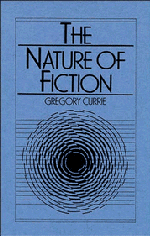Chapter 1 - THE CONCEPT OF FICTION
Published online by Cambridge University Press: 05 November 2011
Summary
There can hardly be a more important question about a piece of writing or speech than this: Is it fiction or nonfiction? If the question seems not especially important, that's because we rarely need to ask it. Most often we know, in advance of reading or hearing, that the discourse before us is one or the other. But imagine we did not know whether The Origin of Species is sober science or Borgesian fantasy on a grand scale. We would not know whether, or in what proportions, to be instructed or delighted by it. No coherent reading of it would be possible.
What makes a piece of writing or speech fictional? Despite the apparent ease with which we judge that this is fictional and that is not, and despite the significance that judgments of this kind have for our subsequent experience of the work, most of us are in no good position to answer the question. Fiction is one of those concepts like goodness, color, number, and cause that we have little difficulty in applying but great difficulty in explaining. Conceivably, no general account of what fiction is can be given. Fiction might be so basic a concept that any attempt to explain it will be circular, or the concept might dissolve on closer inspection into a variety of subcases with no more in common than the name. Neither possibility can be ruled out a priori.
- Type
- Chapter
- Information
- The Nature of Fiction , pp. 1 - 51Publisher: Cambridge University PressPrint publication year: 1990



